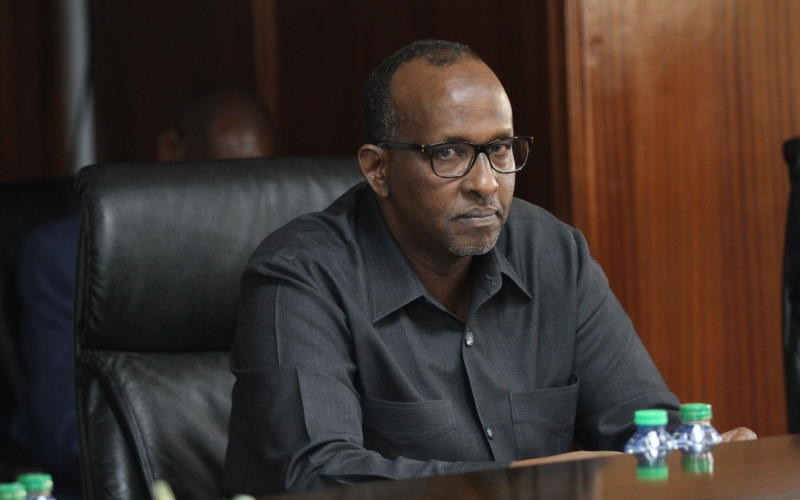The High Court has suspended the operations of a special committee appointed by Health Cabinet Secretary Aden Duale to audit over KSh33 billion in pending medical claims at the National Health Insurance Fund (NHIF), casting fresh scrutiny on the legality and motives of the move.
Justice Reuben Nyakundi issued conservatory orders halting the committee’s activities following a constitutional petition challenging its establishment. The petition, filed by Nakuru-based surgeon Dr. Benjamin Magare Gikenyi and three other petitioners, alleges that CS Duale acted unilaterally, bypassing constitutionally mandated institutions and processes.
At the centre of the legal storm is the claim that the Cabinet Secretary usurped the powers of the Auditor-General, who, under Article 229(4)(g) of the Constitution, is solely mandated to audit public funds. The petitioners argue that Duale’s decision to form a 19-member task force without involving the Auditor-General constitutes a blatant disregard for constitutional order and due process.
They further argue that if a genuine audit had been necessary, the lawful course would have been to formally request the Auditor-General to undertake the exercise, as provided under Article 254(2) of the Constitution and Section 37 of the Public Audit Act.
By sidestepping this process, Duale is accused of acting beyond his legal mandate, fueling allegations of executive impunity. The petition also raises concerns about the committee’s formation. Its members were reportedly handpicked without public advertisement or competitive recruitment, a move the petitioners claim violates Article 232(1)(g), which mandates transparency and merit-based appointments in public service.
Privacy concerns further complicate the controversy. As the committee comprises individuals who are neither public officers nor NHIF employees, their potential access to patients’ confidential medical data is viewed as a serious breach of the Data Protection Act and Article 31 of the Constitution.
The petitioners also assert that the task force’s findings were to be delivered solely to the Cabinet Secretary, with no legal obligation for public disclosure. This lack of accountability, they argue, removes the process from public oversight, undermining principles of good governance.
By forming a shadow audit body with no legal standing, the Cabinet Secretary is accused of using a backdoor mechanism to seize control over a process constitutionally assigned to another office. Whether driven by political expediency, internal turf wars, or a genuine concern for NHIF accountability, the court’s intervention sends a strong signal against executive overreach.
Justice Nyakundi’s ruling clarifies that, while the petition raises serious legal questions, the final verdict awaits full arguments. The suspension of the committee pending a full hearing reflects the judiciary’s prudence in halting processes that may be unconstitutional until thorough legal scrutiny is undertaken.
The matter is set for mention on June 2, 2025, but it has already ignited debate about the limits of Cabinet power and whether impunity persists at the highest levels of government.





